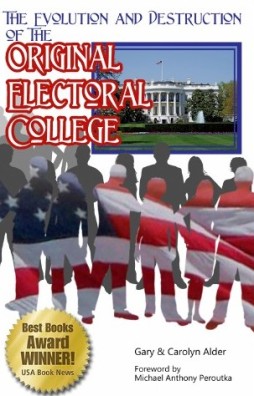A Brief Explanation of the 15 Keys
#1 – God is the source of all truth
Seeking Truth is the primary object and function of the Religious Realm in which Government has NO jurisdiction. Only God has all knowledge. The rest of us can learn much from other people. Allowing differing views of truth amounts to Religious Freedom. Education belongs in the Religious Realm. From colonization on, the Bible was the universal textbook of the home and schools. In the early days of the Republic, the political leaders as well as the religious leaders and the people generally, had no problem with publically acknowledging the hand of God in their daily lives and in enlightening their minds with truth and wisdom.
#2 – God is the source of freedom
The Declaration of Independence was also a declaration of dependence upon God for protection and deliverance, as well as an appeal to Him to aid them in their righteous justification for seeking freedom: “appealing to the Supreme Judge of the World for the Rectitude of our Intentions,…with a firm Reliance on the Protection of Divine Providence…” It was obvious to many of the Founders that God had granted the gift of freedom.
#3 – Freedom is the physical manifestation of agency and consequences, in the absence of coercion
Practicing Freedom is a daily exercise in the Economic Realm. A Free Market Economy (free from government intervention) results in Economic Prosperity. Freedom is the opportunity to apply free will in pursuing personal goals, preferred occupations, and religious worship. Freedom allows the ability to try, but gives no guarantee of successful outcome. In a free society, government is not authorized to redistribute the wealth (which comes from the labors of the people). Individual charity, families, and churches at the local levels helped people in need.
#4 – Justice is the absence of injustice; it is achieved by securing individual rights
To establish Justice, Order, and Defense are the legitimate functions of the Political Realm in which government has limited, delegated authority. Unalienable rights such as life, liberty, opportunity to produce, purchase, or pursue personal goals and happiness are given by God and not by government. The proper role of government is to secure our God given unalienable rights. Laws protect us from criminals and the Constitution protects us from the government.
#5 – Natural Law, or God’s Law, should be the foundation of municipal law
Unalienable rights such as life, liberty, and property must not be abridged without due process of law. Only after conviction of infringing on another’s life, liberty, or property could the guilty be punished. The Founders established the United States on a Biblical foundation of law and government; God’s Law. Oaths were taken as a witness to God to tell the truth, uphold a contract, or faithfully administer an office of trust.
#6 – Religion, morality and knowledge in the science of government are the pillars of human happiness and political prosperity
The teaching of the clergy provided the moral stability of the society. Education, seeking truth in all areas of life, including the proper role of government, is the duty of the religious realm with the primary responsibility resting upon the family. The local church was most often also the school house. The clergy would warn of dangerous trends and were often the spokesmen for preserving freedom. In this environment, the society, the body politic, reaches its highest level of political prosperity.
#7 – The Declaration of Independence declares the principles of freedom; the United States Constitution is the strategy for freedom
The Declaration of Independence is a promise for freedom. The Constitution is the charter of freedom, or the fulfillment of the promise for freedom. These principles being structured in a constitutional context of checks and balances allow the government to put precept into practice through just laws.
#8 – The Constitution was designed to control the government, not to control the people
The United States Constitution is the government’s boss. It tells the national government what it can and can’t do. The Constitution is to define, restrict, and control the powers of the national government; to “bind down from mischief those we are obliged to trust with power, with the chains of the Constitution.”
#9 – The national government was to deal with the states and other nations; the states and local governments were to deal with the people
The “more perfect union” of the States delegated to the central government powerful prerogatives in a few specific areas, such as national defense, matters between the states and other nations, payment of debts, regulating the standard of money, weights and measures, etc. The national government was to have NO direct relationship with the people. Welfare meant the well-being of all the people of the nation, not specific groups.
#10 – The Constitution was structured to recognize and protect separate and sometimes conflicting interests
The interests of the States, both large and small, are represented equally in the Senate. Another protection results from the Senate being able to ratify or veto some Executive Branch decisions. In the House of Representatives the interests of the people of the States are represented proportionally. Even minority interests are protected by law. There are no class distinctions or hierarchical positions recognized by the Constitution.
#11 – The Formula For Freedom is found in the structure of the U.S. Constitution:
- Limited, delegated powers. (Enumeration)
- Vertical distribution of powers. (Federalism)
- Horizontal separation of powers. (Separation)
- Checks. (Bridle usurpation)
- Balances. (Representation of all interests)
- Secured rights. (Individual sovereignty)
The genius of creating the necessary controls over the national government and each of its branches, lies in the strategy of choosing those who serve by different methods, for different terms of office, representing different interests, and delegating to each different responsibilities. This strategy checks the usurpation of power by allowing each legitimate and constitutionally authorized branch to protect its power from the other branches.
#12 – The Framers intelligently designed The United States of America to be a complex constitutional representative Republic not a Democracy
In a Democracy the majority rules. This easily turns to mobocracy and anarchy. In a complex constitutional representative Republic, people elect people to represent them on several levels and they are expected to look out for their best interests. The representatives are limited in their prerogatives because the government is restricted by a written constitution and therefore governed by law, not by the whims of men.
#13 – The first 10 amendments, The Bill of (Individual) Rights, do not amend the original intent of the Constitution. They clarify the restraints placed on the national government and they safeguard the rights of individuals
A right can be described as a just claim. Rights serve as checks against government usurpations. A promise of a declaration of individual rights, as part of the Constitution, was a condition of ratification by several of the States.
#14 – The 9th and 10th Amendments are the keystones to preserving Freedom
These two amendments summarize the intent of the Framers regarding personal rights and government powers. The rights of the people are retained in the people, whether or not they are enumerated, but the powers delegated to government are limited to only those which are enumerated in the Constitution.
#15 – In order to retain the divinely inspired Constitution, the “Miracle at Philadelphia,” every generation must be educated in the divine science of government and be vigilant in its preservation
Many of the Founders recognized that in order to preserve the Constitution, every generation of Americans must be taught the proper role of government, to prepare themselves to be patriots and statesmen, and the hows and whys of the structure of the government which promoted freedom. The Founders knew first hand that freedom isn’t free, that freedom is fragile and that it could be easily lost or broken. They also recognized that freedom requires responsibility and that the “price for freedom is eternal vigilance.”


